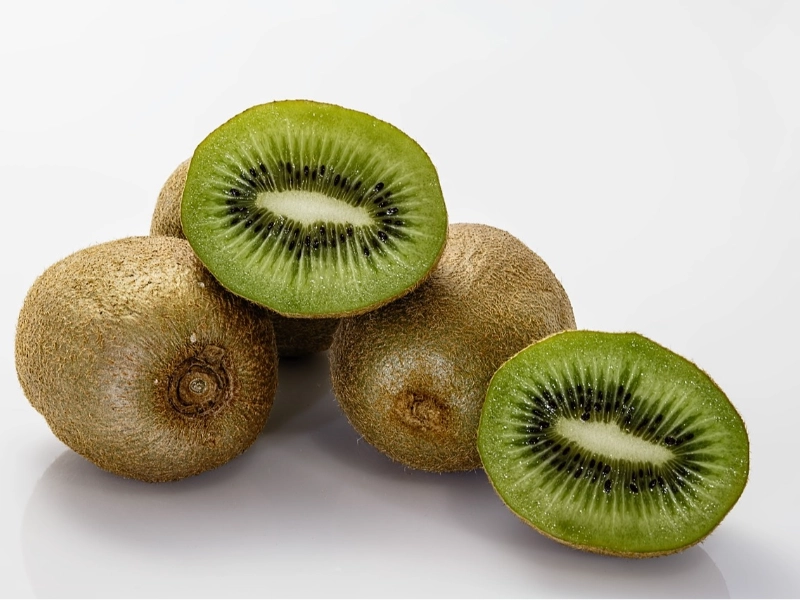Kiwi: The Secret Behind the Vitamin C King
Advertisement
5. Health Benefits: Beyond Immune Support

Advertisement
Although high vitamin C content makes kiwis popular for their immune-boosting qualities, their health advantages go much beyond this one factor. Kiwis are a real superfood since their special mix of minerals and bioactive substances supports a great spectrum of health advantages.
Kiwis are first-rate for intestinal wellness. Actinidin is a special enzyme found in them that helps break down proteins, hence possibly improving digestion and lessening of bloating. Breaking down challenging-to-digest proteins present in meat and dairy products is especially where this enzyme shines. Kiwis' high fibre content also helps a good gut flora and frequent bowel motions. Studies have indicated that kiwis can help relieve constipation and increase general digestive ease. Kiwis' prebiotic fibres also feed helpful gut bacteria, therefore encouraging a good balance of gut flora.
Kiwis have been linked in regular consumption to better cardiovascular health. Kiwis' potassium counteracts the effects of sodium and releases tension in blood vessel walls, therefore helping to control blood pressure. Especially LDL (bad) cholesterol, the fibre content may help reduce cholesterol levels. Furthermore, by stopping the oxidation of LDL cholesterol, a main component in the development of atherosclerosis, the antioxidants in kiwis—including vitamin C and polyphenols—may help lower the risk of heart disease. Further supporting heart health, several studies have also indicated that kiwi intake may help lower triglyceride levels and aid to prevent blood clot formation.
Kiwis have a low glycemic index, which means despite their sweet taste they won't produce sharp increases in blood sugar levels. For those with diabetes or those controlling their blood sugar levels, this makes them an outstanding fruit option. Kiwis' fibre also aids in the slow down of sugar absorption, so supporting blood sugar stability. Regular kiwis intake has been linked in several studies to enhanced insulin sensitivity, which is good for both controlling and avoiding type 2 diabetes.
Two antioxidants absolutely vital for eye health are lutein and zeaxanthin found in Kiwis. These chemicals guard the eyes from damaging high-energy light waves such as UV rays. Acting as an organic sunscreen, they gather in the eye's lens and retina. Kiwis taken regularly could help lower the development of cataracts and age-related macular degeneration. Kiwis' strong vitamin C content also supports blood vessel health in the eye and might help stop or slow down some eye diseases' development.
Skin Health: Kiwis' high vitamin C concentration is crucial for collagen formation, which preserves young, healthy-looking skin. A protein, collagen gives the skin flexibility and structure. Kiwis' vitamin E and antioxidants also shield the skin from oxidative stress and could aid to lessen aging's effects including fine lines and wrinkles. Frequent kiwis intake can help shield the skin from pollution and sun damage as well as contribute to a more brilliant complexion.
Fascinatingly, kiwis could help to enhance the quality of sleep. They include serotonin, a neuromitter connected to better sleep habits. Eating kiwis before bed might help individuals fall asleep faster and have higher quality of sleep, according to a study. By lowering inflammation and oxidative stress, which can disrupt sleep patterns, kiwis' high antioxidant content may also help to promote better sleep.
Advertisement
You May Like

